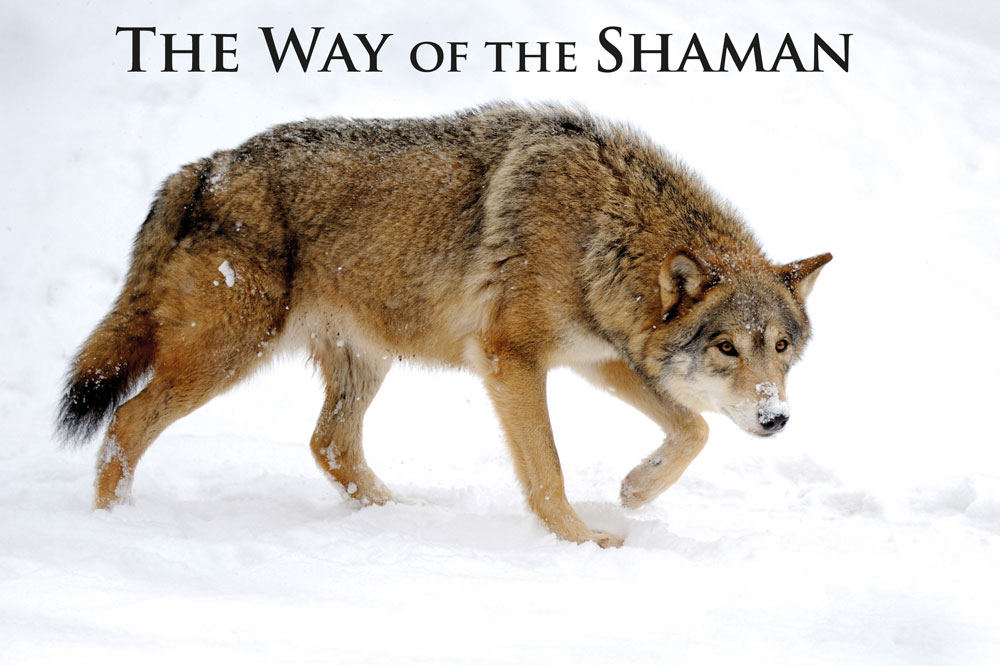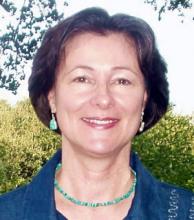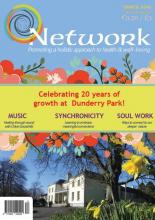The Way of the Shaman - a conversation with Susan Mokelke
by:
Network
Published:
Monday, June 9, 2014

I was trained as a lawyer. I went into law because I liked school and I liked studying and it seemed like a way to build a good concrete profession from that. After law school I worked for a downtown LA law firm, but pretty quickly I came to realise that there wasn’t any heart connection in the work for me.
At the time my best friend was involved with an educational non-profit foundation, and I liked what they were doing and worked with them for around 18 years. But eventually I came to a point that you could describe in psychological terms as a burnout. I’d been working in a very intense and focused way and I suppose I had set aside my own personal desires and needs. I decided to stop and take some time for myself.
I like to solve problems, so I approached that situation as a problem. I made lists of what I was good at, and lists of what the world needed and tried to see if there was a way of matching them up. In a way I was approaching the problem in the same state of consciousness that caused the problem! I did that for a few weeks and nothing happened. Life felt stale, there wasn’t a lot of joy, and it didn’t feel like there was any mystery left.
I couldn’t figure it out. I wasn’t sure what I was supposed to do or how to find it, and there came a point where I decided to just give up trying to solve it. I went to bed and when I woke up, in that space between sleep and normal consciousness, I literally heard a voice say ‘Feed the soul, give it a voice’. It was so distinct and clear that I had to pay attention to it. I didn’t know how to feed my soul, so my next task was to find out by going to ask it. I did what in essence was a shamanic journey – though I didn’t learn that until later. It was a really powerful experience. From a shamanic perspective what happened was that some soul portions came back spontaneously, and I met a lot of animals and what I later realized were spirit helpers for me. When I described this to a friend who had been involved for many years with Michael Harner’s work she told me that it sounded very like a shamanic experience.
I was living in the Bay area, and Michael Harner’s organisation wasn’t far away, so I went along for some workshops and that’s how I got involved in the world of shamanism. That’s a journey I’ve continued ever since because each step of the way something miraculous opened up for me. It started out very personally and then I broadened it out to look at the bigger picture. I discovered that there is always something more, and that there is always mystery, you just need to put yourself in the right state to perceive it.
I think shamanism a very good antidote to the feeling that some people have that they are alone in the universe. You make connections with your helping spirits and you understand that you are not alone and that there is always something beautiful and wise and compassionate available to you.
I see such a potential for shamanism on a global scale. Shamanism is part of a holistic approach to healing, and it can provide a spiritual component to the healing process that is lacking from our current medical models. Shamanism deals with the spiritual aspects of an illness, and by that I mean the part that is unseen and in my mind is related to the soul. Recently we have been attracting more nurses and doctors to our workshops and advanced trainings. Many of them are seeing some of the limitations with medicine and are looking for ways to treat the whole person.
Traditionally the goal of shamanism has been about solving problems, and that practical problem solving element is often forgotten about. Journeying allows people to access a spiritual council of immense wisdom, which is applicable not only to personal healing and transformation but to other problems and challenges. In shamanism you go and find your own answers, there is no system of belief or faith. It is a system of knowledge and a kind of spiritual democracy.
Shamanism is also about bringing people back to nature with compassion and love. It can help people realise that everything is interconnected and that everything is alive – and not just in an intellectual sense, but in a very real way. With that knowledge you need to act differently, you can no longer treat other beings and the Earth disrespectfully. We recognise that we have a responsibility as caretakers. It is also reconnecting people across the world to their ancestry. So much indigenous knowledge was lost through the imposition of religious or political ideologies. Much of Michael Harner’s work has been about reclaiming this shamanic birthright.
The methodology of core shamanism evolved from Michael’s anthropological knowledge and experience. We focus on the common elements found across different cultures, because most people here are not from a particular shamanic culture. If you learn the basic methods then if you become drawn to a particular form of shamanism, such as Celtic or other shamanism, then you can go and study those, but with a solid foundation to inform you about what is going on in those specific cultural practices. In my role as President I am very much interested in seeing the work of the Foundation continue with the same high standards of value and authenticity that have come through Michael’s knowledge.
There is another thing that the Foundation is doing that is unique – we have collected an immense archive of books and writings on cultural and contemporary shamanism, including over 5000 of the first shamanic journeys recorded by Westerners. These were written down at the very beginning of Michael Harner’s work when nobody really knew what to expect in their journeys. A selection of these are available to read in Michael’s new book Cave and Cosmos. These personal explorations are a kind of "mapping of non-ordinary reality" through each journeyer's unique experience. The challenging task is to identify some of the commonalities, in what at first glance might appear to be very different experiences, and also compare them to cultural practices, to create a non-ordinary reality map. We are working towards obtaining a long term grant so we can make that very unique material available to a wider academic audience. So we are interested in teaching but also preserving this amazing knowledge.
About the author:
 Susan Mokelke is the President of The Foundation for Shamanic Studies. Since the organisation was established by Michael Harner and Sandra Harner in 1979, it has been at the forefront of the preservation and study of shamanic traditions from around the world and the teaching of Michael Harner’s core shamanism. Susan shared with us the story of how she became involved with shamanism, the potential that she sees for it on a personal and global scale, and the work she hopes to achieve at the helm of the Foundation.
Susan Mokelke is the President of The Foundation for Shamanic Studies. Since the organisation was established by Michael Harner and Sandra Harner in 1979, it has been at the forefront of the preservation and study of shamanic traditions from around the world and the teaching of Michael Harner’s core shamanism. Susan shared with us the story of how she became involved with shamanism, the potential that she sees for it on a personal and global scale, and the work she hopes to achieve at the helm of the Foundation.
In Issue:
Latest Issue
Upcoming Events
-
17/04/2020 to 26/04/2020
-
18/04/2020
-
23/04/2020
-
15/05/2020 to 23/05/2020
-
16/05/2020 to 17/05/2020
Recent Articles
Article Archive
- November 2011 (2)
- January 2012 (3)
- February 2012 (2)
- March 2012 (2)
- April 2012 (4)
- May 2012 (4)
- June 2012 (1)
- July 2012 (3)
- August 2012 (2)
- October 2012 (2)

